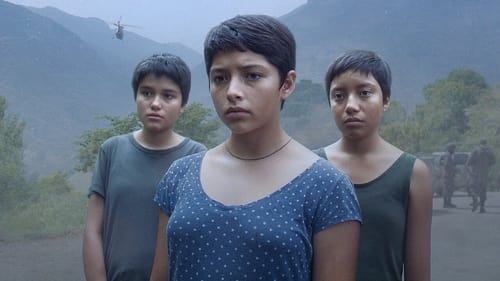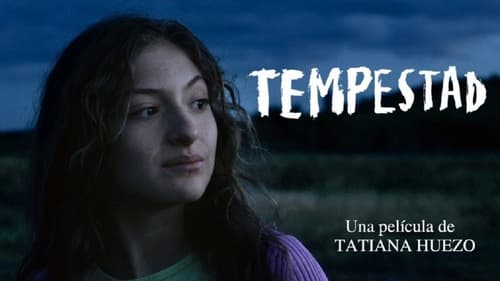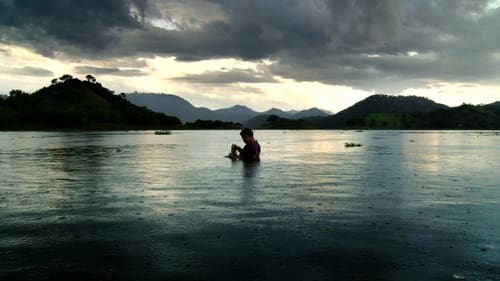Tatiana Huezo
Birth : 1972-01-09, San Salvador, El Salvador
History
Tatiana Huezo (El Salvador, 1970) studied film at CCC and Universidad Pompeu Fabra in Barcelona. She has taught at CENTRO, CCC and the ECAM. Her filmography as a director, photographer, and editor includes documentaries and short fiction films. She has served as judge at festivals such as FICUNAM, DocumentaMadrid and the Festival de Lima. Her first documentary film, El lugar más pequeño, has participated in more than 50 national and international festivals, earning more than 40 awards. She is now working on her second feature film, La Tempestad.

Editor
In the remote village of El Echo that exists outside of time, the children care for the sheep and their elders. While the frost and drought punish the land, they learn to understand death, illness and love with each act, word and silence of their parents. A story about the echo of what clings to the soul, about the certainty of shelter provided by those around us, about rebellion and vertigo in the face of life. About growing up.

Producer
In the remote village of El Echo that exists outside of time, the children care for the sheep and their elders. While the frost and drought punish the land, they learn to understand death, illness and love with each act, word and silence of their parents. A story about the echo of what clings to the soul, about the certainty of shelter provided by those around us, about rebellion and vertigo in the face of life. About growing up.

Screenplay
In the remote village of El Echo that exists outside of time, the children care for the sheep and their elders. While the frost and drought punish the land, they learn to understand death, illness and love with each act, word and silence of their parents. A story about the echo of what clings to the soul, about the certainty of shelter provided by those around us, about rebellion and vertigo in the face of life. About growing up.

Director
In the remote village of El Echo that exists outside of time, the children care for the sheep and their elders. While the frost and drought punish the land, they learn to understand death, illness and love with each act, word and silence of their parents. A story about the echo of what clings to the soul, about the certainty of shelter provided by those around us, about rebellion and vertigo in the face of life. About growing up.

Writer
In a mountain town, where corn and poppies grow, the girls wear boyish haircuts and have hiding places underground to escape the threat of being stolen. Ana and her two best friends grow up together, affirming the bonds of their friendship and discovering what it means to be women in a rural town marked by violence. Their mothers train them to flee death, to escape those who turn them into slaves or ghosts. They create their own impenetrable universe, but one day one of the girls doesn’t make it to her hiding place in time.

Director
In a mountain town, where corn and poppies grow, the girls wear boyish haircuts and have hiding places underground to escape the threat of being stolen. Ana and her two best friends grow up together, affirming the bonds of their friendship and discovering what it means to be women in a rural town marked by violence. Their mothers train them to flee death, to escape those who turn them into slaves or ghosts. They create their own impenetrable universe, but one day one of the girls doesn’t make it to her hiding place in time.

Editor
A woman is recruited to a prison controlled by organized crime while another woman searches for her missing daughter. Through images that submerges us in a journey from north to south Mexico, both testimonies collide and take us to the center of a storm: a country where violence has taken control of our lives, our desires and our dreams.

Screenplay
A woman is recruited to a prison controlled by organized crime while another woman searches for her missing daughter. Through images that submerges us in a journey from north to south Mexico, both testimonies collide and take us to the center of a storm: a country where violence has taken control of our lives, our desires and our dreams.

Director
A woman is recruited to a prison controlled by organized crime while another woman searches for her missing daughter. Through images that submerges us in a journey from north to south Mexico, both testimonies collide and take us to the center of a storm: a country where violence has taken control of our lives, our desires and our dreams.

Director
Eleven award winning directors explore why nearly one out of every two students in Latin America never graduates high school.

Director
Dreams, voices that recount the violence in El Salvador, fights between gangs, mourning for the dead. And a feeling of fear that resonates in the words. On screen are girls, shown in the course of their daily lives, people who work, the details of their existence. A film that points at the deep disease of a society.

Director
Lulú wakes up amidst the silence of a house that has been emptied. Five years ago her eight-year-old son, Brandon, and her husband disappeared. The absence they left behind now makes her live in a limbo that is also inhabited by desire, hope and the fight to find them alive.

Director
Years after the Salvadoran military destroyed the village of Cinquera in that country’s civil war, survivors have returned to rebuild their community. Soulful, beautifully rendered, this amazing debut is an evocative testament to place, memory and the power of life to rebound from tragedy.

Director
A woman’s body on a bed. The camera follows her silhouette and slides out of the window to frame an urban landscape on the water’s edge. The sky and the sea share the horizon. A breath of freedom emerges from the images, like a dream in the shade of summer. A short effort made as part of the Pompeu Fabra film school, in Barcelona.

Director
A farmer marries a neighbour’s daughter. When she falls ill, the man welcomes the woman’s sister into his home, forming an unusual family. They can’t have children. They adopt one, who is now married and has his own children. They all live together. A humanist film, against exclusion. In favour of sharing.

Cinematography

Writer

Director

Director
An arid landscape in which various people move around: a girl walks along holding a goldfish in a glass of water, children have fun with an empty bath tub, people at their window observe what’s happening. And finally, rain. Drought is treated with realism and oneirism in the filmmaker’s first work, made when she was still a film student.








